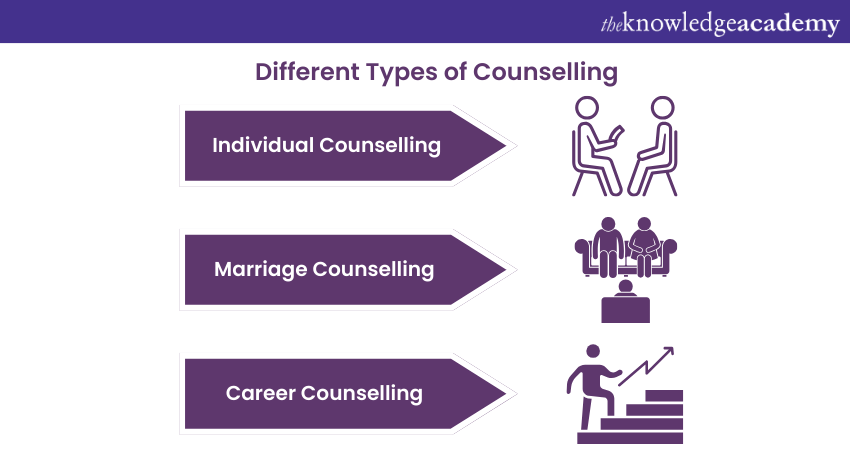Practical Checklist to Making the Most of virtual therapy platforms
Checking out the Advantages of Virtual Therapy in Modern Mental Healthcare
The increase of virtual therapy marks a considerable change in mental healthcare. It uses improved access, allowing people from varied backgrounds to seek assistance without geographical restraints. Flexibility in organizing fits differing way of livings, while the convenience of home can promote openness. Nevertheless, the ramifications of these modifications prolong beyond mere benefit. The developing landscape of therapy increases essential concerns regarding its long-lasting impacts on client involvement and treatment end results.
Improved Ease of access for All
Although typical therapy commonly presents obstacles such as geographical place and scheduling disputes, virtual therapy significantly enhances access for individuals looking for psychological wellness support. By removing the requirement for physical traveling, virtual therapy permits clients from remote locations or those with movement obstacles to get in touch with certified specialists. This mode of therapy can get to underserved populaces that may do not have neighborhood mental health sources, thus resolving differences in accessibility to care. Additionally, virtual systems can cater to diverse needs, supplying solutions in numerous languages and accommodating numerous cultural histories. Customers can engage with a broader range of specialists, giving them with options that line up with their certain demands and preferences. This boosted ease of access fosters a much more comprehensive environment, enabling people to seek assistance without the preconception typically connected with in-person check outs. Generally, virtual therapy stands for a substantial improvement in making mental healthcare much more easily accessible to all.
Flexibility in Organizing Sessions

As virtual therapy remains to get traction, its integral adaptability in scheduling sessions verifies to be a considerable advantage for many individuals. Unlike traditional in-person therapy, virtual therapy permits clients to select session times that finest fit their personal and specialist commitments. This versatility accommodates those with requiring work timetables, family members obligations, or various other dedications that can make participating in physical appointments testing.
Clients can conveniently reschedule or adjust their sessions as required, reducing the stress and anxiety connected with rigid consultation systems. The availability of numerous time ports throughout the week, including nights and weekends, additionally enhances accessibility. This flexibility not only urges uniformity present yet likewise cultivates a higher commitment to the restorative procedure. Inevitably, the flexibility in organizing sessions stands for a transformative change in mental health care, encouraging people to prioritize their well-being without sacrificing various other elements of their lives.
Comfort of a Familiar Setting
The convenience of an acquainted setting significantly improves the effectiveness of virtual therapy for several customers. Involving in therapy from the safety of their very own homes enables individuals to really feel even more secure, reducing stress and anxiety that might come with standard in-person sessions. This familiarity can assist in open interaction, allowing customers to express their ideas and feelings much more easily.
The existence of individual products and the capability to manage their environments can add to a sense of safety and leisure. Customers often report that remaining in a comfy space enables them to concentrate a lot more on the therapeutic procedure as opposed to the setting itself.
Additionally, the casual nature of virtual sessions can help liquify barriers that might exist in a typical office atmosphere, fostering a much deeper link with specialists. Generally, the convenience of familiar environments plays a crucial role in enhancing the therapeutic experience and effectiveness for many individuals looking for mental health assistance.
Bigger Range of Restorative Alternatives
A wider series of therapeutic choices appears with virtual therapy, allowing clients to accessibility different techniques that might not be possible in typical settings. This adaptability makes it possible for individuals to discover varied strategies such as cognitive-behavioral therapy, mindfulness practices, art therapy, and also specialized interventions like trauma-informed treatment or dialectical behavior modification.
In addition, clients can pick from a broader spectrum of specialists, consisting of those who concentrate on particular niche areas or specific populaces, enhancing the chance of finding a suitable match. Virtual platforms frequently offer accessibility to team therapy sessions, assistance neighborhoods, and workshops that may be geographically unavailable or else.
This selection empowers clients to participate in their recovery process according to their one-of-a-kind choices and demands, possibly boosting inspiration and dedication to treatment. Because of this, the landscape of psychological health treatment comes to be extra comprehensive and versatile, catering to a larger variety of specific experiences and challenges.
Decreased Preconception Bordering Therapy
Accessing therapy with virtual platforms adds to a considerable decrease in the stigma commonly related to psychological health and wellness treatment. By providing a discreet and personal atmosphere, virtual therapy enables people to seek aid without the fear of being judged or identified. This privacy allures to those who may otherwise be reluctant to pursue in-person therapy as a result of societal understandings surrounding mental health.
Moreover, as the frequency of virtual therapy boosts, it normalizes the discussion around psychological health, making it a more acceptable part of daily life. Individuals usually really feel much more comfortable discussing their experiences on-line, advertising visibility and decreasing feelings of isolation. The access of these services additionally encourages a broader demographic to involve with psychological wellness sources, cultivating a culture of assistance rather than shame. Ultimately, the increase of virtual therapy plays a vital duty in improving perspectives in the direction of seeking aid, adding to an extra accepting society pertaining to mental health difficulties.
Cost-Effectiveness and Price

Reduced Session Prices
Lots of individuals looking for mental health assistance find that virtual therapy greatly lowers session expenses contrasted to typical my review here in-person choices. The elimination of travel costs and pause job typically adds to total savings. Furthermore, numerous virtual specialists supply affordable prices because of lower overhanging expenses linked with maintaining a physical office. This change in expenditure enables customers to gain access to high quality psychological health solutions without the economic stress that might feature traditional therapy. For several, this affordability allows much more constant sessions, which can enhance treatment end results. Therefore, virtual therapy not only democratizes access to psychological wellness care but additionally offers a sustainable economic design that straightens with customers' budgets, making psychological health assistance much more possible for a wider audience.
Increased Access Options
While conventional official statement therapy frequently provides logistical barriers, virtual therapy significantly increases accessibility alternatives for people looking for mental healthcare. By eliminating the need for travel and permitting adaptable scheduling, virtual therapy accommodates varied way of livings and dedications. This accessibility is specifically advantageous for those in remote locations or with mobility obstacles. In addition, the cost-effectiveness of virtual therapy lowers economic pressure, making mental wellness solutions more obtainable. Numerous systems use tiered rates or moving scale fees, promoting price. Insurance coverage firms increasingly acknowledge virtual therapy, further boosting its economic availability. In general, virtual therapy not just broadens the range of who can receive care however likewise addresses financial barriers, making mental wellness assistance much more comprehensive and obtainable for all.
Enhanced Connection of Treatment
Boosted connection of treatment becomes a significant benefit of virtual therapy in modern-day psychological healthcare. This method enables individuals to keep regular interaction with their therapists, despite geographical barriers or organizing problems. relationship therapy. The versatility of virtual sessions fosters normal check-ins, which are vital for monitoring development and adjusting therapy plans as needed
Additionally, electronic wellness records and telehealth systems help with smooth information sharing among treatment companies. This interconnectedness ensures that all specialists associated with a person's care are updated on therapy advancements, bring about more coordinated and efficient treatments.
Individuals frequently experience decreased anxiousness and raised engagement because of the convenience of accessing therapy from go to these guys acquainted environments. Such ease of access boosts adherence to treatment programs, inevitably improving end results - adhd counselling. To sum up, virtual therapy not only bridges spaces in mental wellness solutions however additionally strengthens the connection of care, an important component of successful therapeutic partnerships
Often Asked Concerns
Just How Does Virtual Therapy Make Sure Privacy and Personal Privacy for Clients?
The existing inquiry addresses the measures virtual therapy uses to secure customer privacy. Using encrypted platforms, protected logins, and compliance with policies like HIPAA, virtual therapy warranties that sensitive details remains exclusive and hard to reach to unauthorized people.
Can I Switch Over Therapists Conveniently in Virtual Therapy?
Changing therapists in virtual therapy is typically simple. Clients can connect their need for a modification through the platform, allowing for flexibility in locating a much better match without the logistical challenges of in-person consultations.
What Modern technology Do I Required for Virtual Therapy Sessions?
To take part in virtual therapy sessions, a specific normally needs a reliable net connection, a computer system or mobile phone with a video camera and microphone, and access to a safe video conferencing system specified by their therapist.

Are Virtual Therapy Procedure as Effective as In-Person Procedure?
Current researches suggest that virtual therapy sessions can be equally effective as in-person sessions, depending on the individual's preferences and circumstances. Aspects such as comfort and availability may enhance the total therapeutic experience for some clients.
What Should I Do if I Experience Technical Issues Throughout a Session?
If technical problems arise throughout a session, one need to smoothly connect the trouble to the specialist, effort to reconnect, or switch to a back-up technique. Persistence and adaptability are necessary in handling these disruptions.